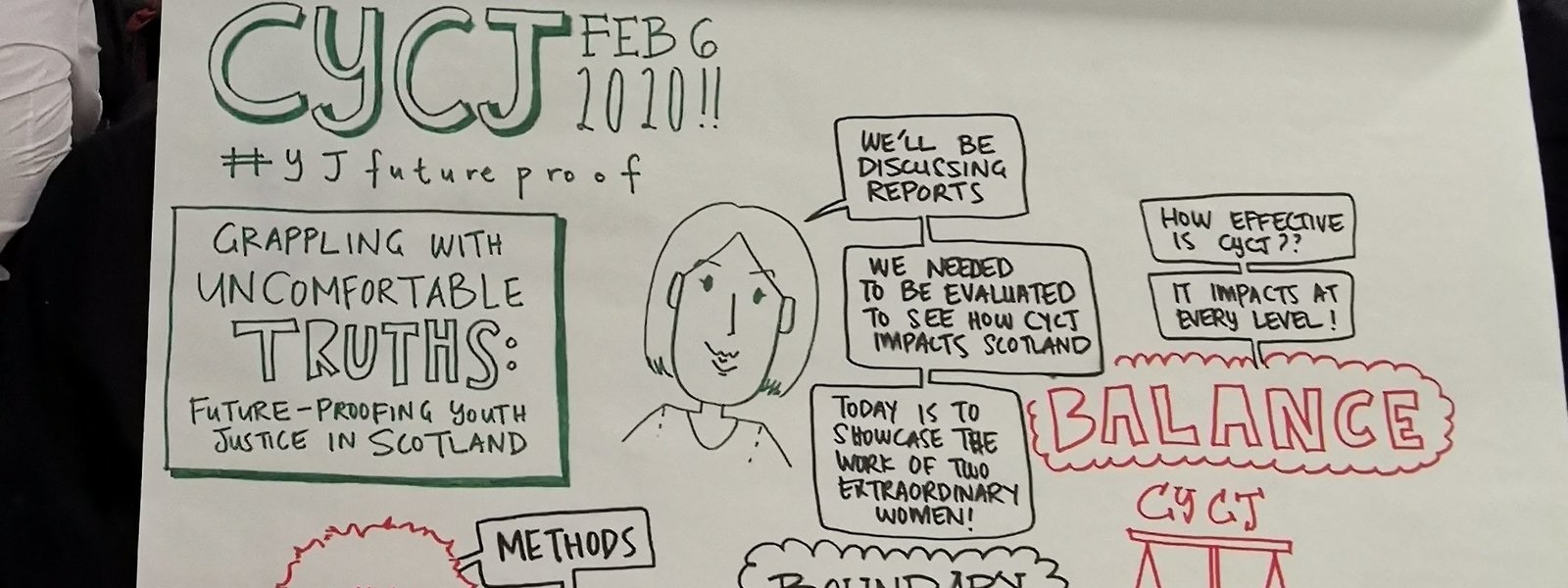The Centre for Youth & Criminal Justice has published findings from an innovative evaluation exercise, which it undertook to better understand and strengthen its contribution to youth justice.
The evaluation, conducted with independent evaluator Catherine-Rose Stocks-Rankin and jointly funded with the Scottish Government, took place from June to December 2019.
During this time, Catherine-Rose worked closely with CYCJ to better understand the centre's work. This involved conducting interviews with team members and stakeholders, and joining conversations, meetings and activities to assess the impact that CYCJ is having on those who work across youth justice in Scotland and on young people's experiences/outcomes. Her resulting findings aim to support CYCJ in its mission to improve youth justice and continue to support Scotland to be the best place in the world for children to grow up.
Catherine-Rose's work was shared at a CYCJ led event on February 6, alongside CYCJ director Claire Lightowler's 'Rights Respecting? Scotland's approach to children in conflict with the law' report, which was launched at the University of Strathclyde's Kilbrandon Lecture last week.
Claire Lightowler and Fiona Dyer, CYCJ's Director and Deputy Director, commented:
"CYCJ has been in existence for the past six years and we were coming to the end of our organisational strategy, as well as Scotland's national strategy for children and young people involved in offending. The time felt right to reflect on both where we go next as a youth justice sector and as an organisation. This evaluation wasn't driven by external partners wanting to know whether CYCJ was doing a good job or offered value for money. It was motivated by a desire across the CYCJ team to better understand our work and challenge ourselves about how we can build on what we do to deliver more impact.
"We are human, we make mistakes, and don't always act as we should. In owning up to this, we hope to enable others across the youth justice world to talk about these things too. After all, in order to improve we need to start by identifying the areas requiring improvement."
Reflecting on the process, Catherine-Rose, whose background is in theory and practice of knowledge translation and evidence into action, said:
"My role was to help CYCJ better understand what it does, how it does it and how it can do it better. I've been supporting them and I've been challenging them. Although I've provided a resource on evaluation and knowledge mobilisation - I've also been a reminder that things can always be improved. Where there is evidence to validate their work, I've made sure to offer it. And where there are insights that can help them learn, I've made sure those messages are practical and clear."
CYCJ will now take this work forward by sharing findings with stakeholders and embedding the recommendations across its work plan going forward.
Catherine-Rose concluded:
"My time with CYCJ has been immensely rewarding. It has been gratifying and enjoyable to work alongside the team and help them to understand the incredible impact and reach that they have, and to witness their own reactions to this journey. I hope that CYCJ feel they have developed the confidence to share this learning, and continue the processes of reflective practice - and that by sharing this work with the wider sector today, others will feel inspired and encouraged to perhaps do the same."
